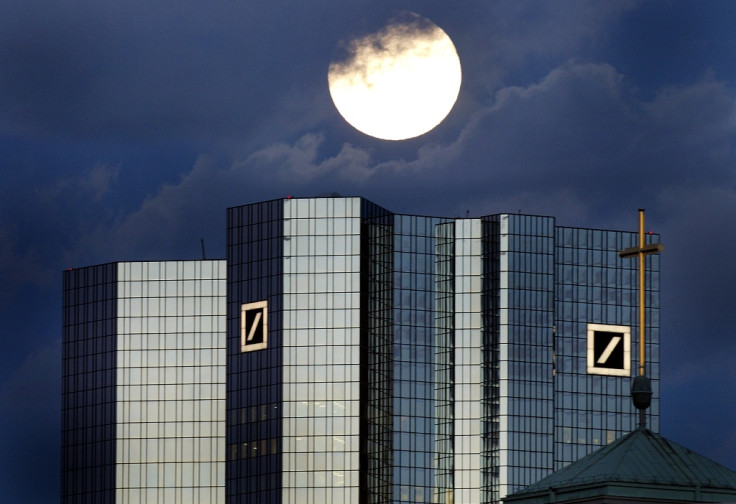German Business Confidence Plunges Again as Analysts Urge Fiscal Stimulus
ECB examining whether EU-wide stimulus is needed

Concerns over Germany's economy have escalated again after business executives' confidence fell for a sixth consecutive month.
October's Ifo Business Climate Index – which surveys 7,000 executives every month – dropped to 103.2 points from September's 104.7 points: its lowest level since December 2012, and significantly below under analysts' expectations.
Klaus Wohlrabe, an economist at the Ifo, said that he expected Germany to report zero growth in the fourth quarter. Given last quarter's 0.3% contraction, anything below this would see Germany enter recession.
"Things have not gone well for German industry and there are no bright spots for industry," Wohlrabe told Reuters.
The dip in confidence comes as a surprise and is a blow to Angela Merkel's government, as the country's composite PMI – which gauges sentiment on national output – rose in October, with energy price drops and the decline in the euro making conditions more favourable for producers and exporters.
"For now, we continue to expect German GDP to rise by 1.3% this year and 1.5% next year. But even this will not be enough to ensure a strong recovery or eradicate the threat of deflation in the Eurozone as a whole, and the risks are to the downside," wrote Jennifer McKeown, senior European economist at Capital Economics in a note.
McKeown called on the government to use fiscal stimulus to arrest the slump. Despite its comfortable financial position, officials have been reluctant to embark on expansionary policy.
The European Central Bank (ECB) is set to unveil the level of its own fiscal stimulus as it looks to steady the sinking Eurozone economy. It began its covered-bond purchasing programme on 20 October and has since purchased at least €800m (£629.6m, $1,013.7) from Portugal and Germany.
An announcement will be made on the afternoon of 27 October as to how much the ECB spent in total on covered bonds since returning to the market for a third time. The bank will be hoping its intervention will stave off deflation in the region, where demand remains stubbornly low.
Inflation remained below 1% for the 13th month in October. The ECB's action is, according to many analysts, overdue. It has watched as central banks in the US and Japan have undertaken aggressive stimulus activity in order to boost demand.
"Most people would like them to do a lot more, and the general consensus is that there aren't enough covered bonds in issue at the moment. If the ECB can't find enough to buy, then the market will start speculating that they will have to buy corporate and government bonds as well," Craig Veysey, head of fixed income at Sanlam Private Investments told Bloomberg.
Germany, the EU's largest economy, last year helped drag the region to a return to growth, but its fortunes have been hit by a succession of external problems, such as the bilateral sanctions regime with Russia and slowing growth in China.
Commenting on the Ifo data, the senior economist at ING Bank Carsten Brzeski said: "While last week's PMI and consumer confidence indicator had given hope that the economy would slowly recover from the psychological shockwaves from the summer, today's Ifo index is less encouraging."
© Copyright IBTimes 2024. All rights reserved.







